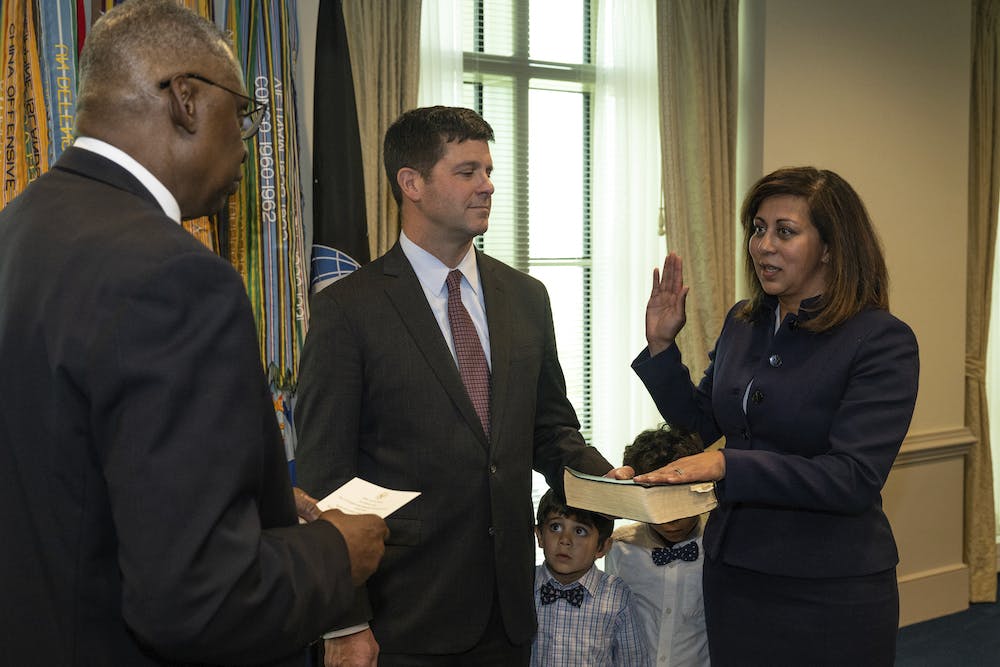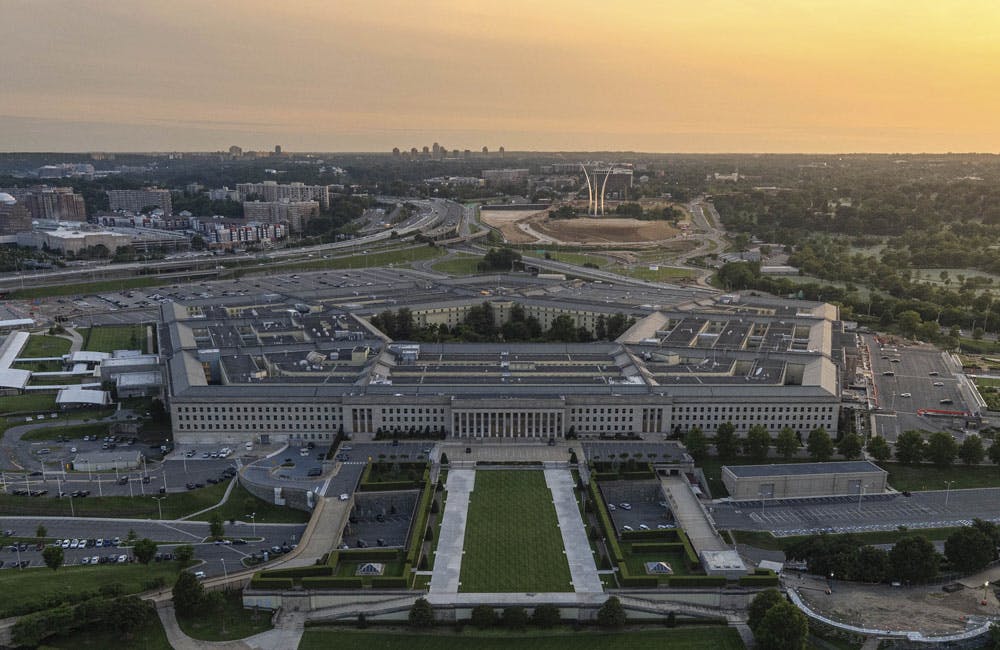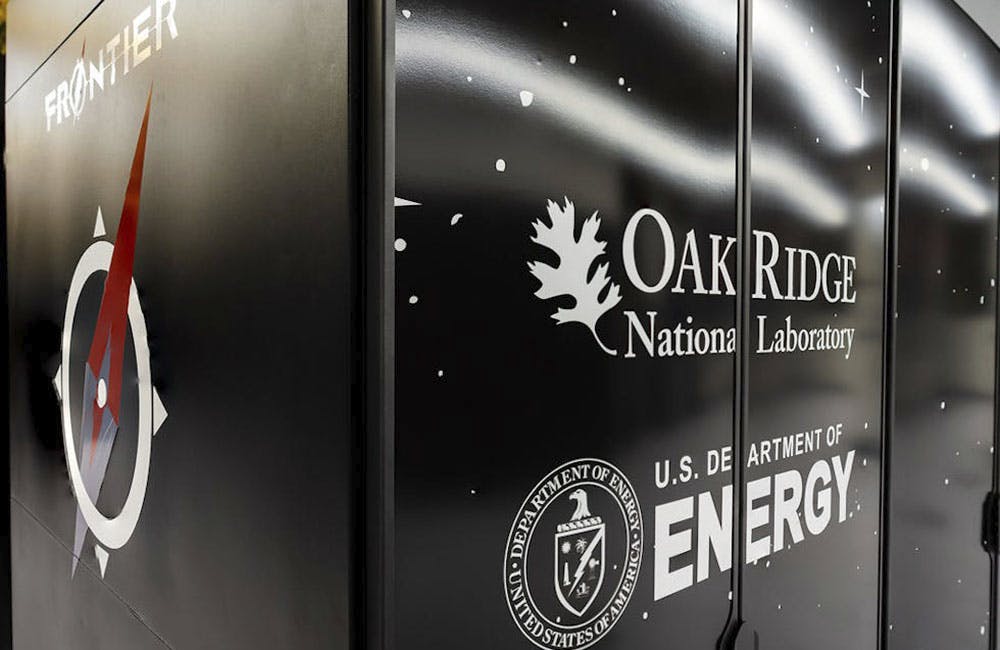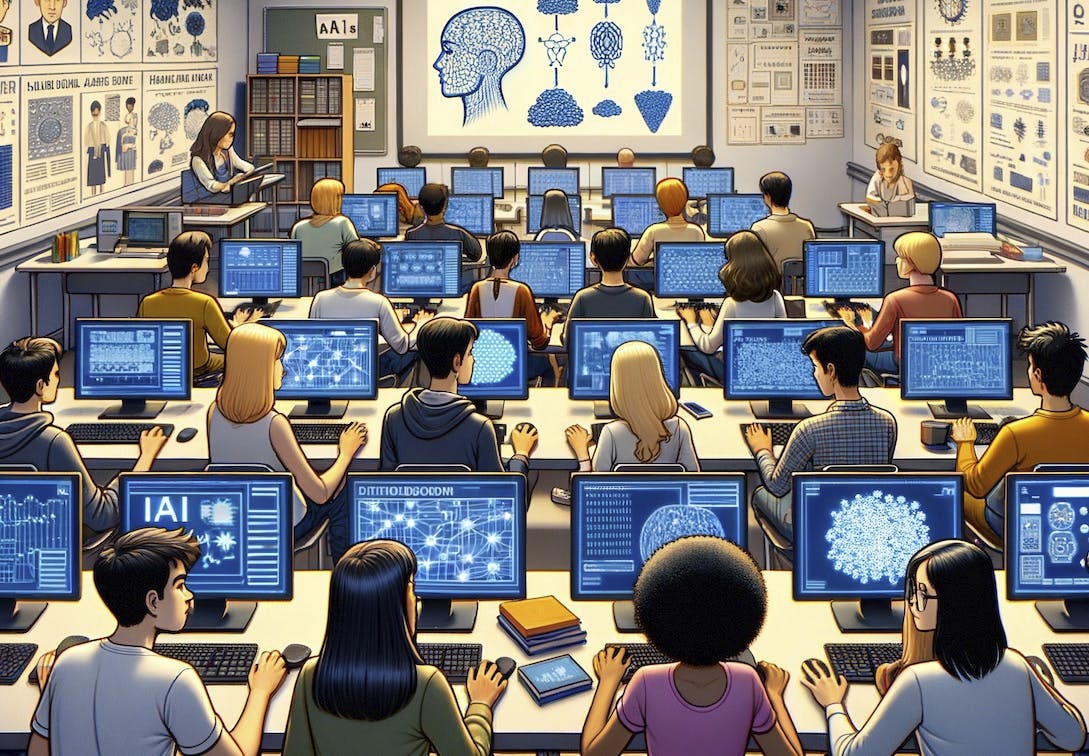The CAIOs Leading Responsible AI Development Across Government
Since the White House’s AI executive order, federal agencies are in the process of naming chief artificial intelligence officers.

Federal agencies are appointing new chief artificial intelligence officers as part of the collective movement to meet directives set forth from the White House’s AI executive order that tasked agencies with a series of responsibilities connected to the emerging technology.
Although artificial intelligence development in the federal government is not new, this marks the first time federal agencies are all mandated to appoint a designated CAIO, whose responsibilities include “coordinating their agency’s use of AI, promoting AI innovation, [and] managing risks from the use of AI,” according to OMB guidance on AI governance.
Some agencies, like the departments of Defense, Health and Human Services and Veterans Affairs, have had AI chiefs in place already comprising various forms of the CAIO title.
Here are some of the most prominent leaders at the agency level in charge of AI.
Department of Agriculture
USDA Chief Data Officer Chris Alvares is responsible for “developing strategies that enable USDA to fully leverage its data as a strategic asset, improving organizational decision-making and outcomes for citizens.”
Alvares began his career working for private sector biotech companies before becoming director of a data analytics team that provided genomic analytics services to other biotechnology and pharmaceutical clients. Alvares joined USDA’s Food Safety and Inspection Service (FSIS) in 2008 as a data analyst, where he built the analytics office from five to more than 20 staff members. Alvares became deputy chief data officer in 2019 where he has been working to modernize data analytics within USDA.
Department of Commerce
Ryan A. Higgins was selected as the Commerce Department’s CAIO on January 1, 2024. Higgins also serves as the department’s acting CIO. Previously, Higgins served as Commerce’s chief information security officer (CISO) and deputy chief information officer (DCIO), where he helped establish policies and processes, developed DOC compliance with the Federal Information Security Modernization Act (FISMA) of 2014 and coordinated incident response.
Prior to joining Commerce, Higgins held a variety of roles within the United States Trustee Program, Department of Justice and Department of Homeland Security.
Defense Department
Radha Plumb became the DOD’s Chief AI Officer in April 2024. Plumb previously served as the deputy undersecretary of Defense for acquisition and sustainment before taking over the CAIO role from Craig Martell in April. He was the first person to hold the title.
Plumb joined DOD in 2021, but served in many other government agencies and positions, including the White House and Department of Energy. Additionally, she worked in the private sector for the RAND corporation, Facebook and Google.
Department of Education
Vijay Sharma is Education’s CAIO, where he will fulfill the responsible AI roles set out by the White House. Sharma has served as the department’s chief technology officer since 2015, according to his LinkedIn profile. Sharma’s federal government tenure began in 2010, when he served in the Enterprise Services Implementation Division at the U.S. Patent and Trademark Office (USPTO).
Department of Energy
Helena Fu serves as the CAIO for Energy and the director of the newly created Office of Critical and Emerging Technology within the department. Fu will “coordinate the department’s use of AI, manage risks from its use, and promote innovation,” according to a December agency press release.
Fu has had an extensive career in federal government, including director for technology and national security at the White House National Security Council, director of international science and technology cooperation and trusted research for the Office of Science at DOE, and at the White House Office of Science and Technology Policy.
Department of Health and Human Services
HHS CAIO Greg Singleton has held the position since 2022. Singleton stepped into a role that has existed at the department since March 2021 and is the second person to hold the position — the first being Oki Mek.
Singleton has been at the agency in various roles since 2017 and had previously served at DOE for more than seven years. At HHS, Singleton is overseeing the implementation of the agency’s AI strategy through the use of its AI Council, which was created in 2021.
Department of Homeland Security
Eric Hysen serves the dual roles of CIO and CAIO for DHS. Hysen was sworn in to the former in 2021 and was named the latter in 2023.
Hysen oversees the agency’s acquisition and use of AI, facial recognition applications and promotion of AI innovation and safety within the agency. Hysen’s prior experience includes being a member of the Biden-Harris transition team’s Technology Strategy & Delivery team and a stint in California’s state government as a special consultant for the Office of Digital Innovation.
Department of Housing and Urban Development
Vinay Singh is HUD’s CFO and CAIO. Singh joined the department in 2022 as CFO after serving as the senior advisor to the administrator at the Small Business Administration. Singh leads the agency’s efforts to use safe and trustworthy AI and promotes innovation and risk management within the department.
Department of Justice
Jonathan Mayer was appointed as the Justice Department’s first Chief Science and Technology Advisor and Chief Artificial Intelligence Officer in February 2024.
Mayer’s role includes advising DOJ leadership on issues like cybersecurity, artificial intelligence and other emerging technologies. Mayer also advises the recruitment of technical talent to meet the DOJ’s hiring goals of the future.
As CAIO, Mayer is tasked with working on “intra-departmental and cross-agency efforts on AI and adjacent issues.” Mayer also leads the Justice Department’s Emerging Technology Board, which oversees AI and other emerging technologies within the department.
Mayer’s previous experience includes Princeton University, where he served as an assistant professor. His research has focused on the intersection of technology, policy and law with an emphasis in criminal procedure, national security and consumer protection.
Social Security Administration
The Social Security Administration (SSA) named Brian Peltier as acting CAIO. Peltier already serves as SSA’s chief architect and responsible AI official and has been at the agency for almost 20 years.
Department of State
Matthew Graviss serves as the Department of State’s chief data and artificial intelligence officer, where he is “responsible for making data accessible, interoperable, and actionable across the Department of State.” Graviss previously served as a director at both the Transportation Security Administration (TSA) and Customs and Border Protection (CBP) before serving as CDO at U.S. Citizenship and Immigration Services (USCIS).
General Services Administration
Zach Whitman, who joined GSA in July 2023 as the agency’s chief data scientist, assumed the CAIO role in November 2023. Whitman was previously CDO at the Census Bureau for seven years and worked in the private sector before his time at Census.
Department of Veterans Affairs
Gil Alterovitz serves as CAIO of the VHA and the director of the National Artificial Intelligence Institute (NAII), one of the major players behind the White House’s Blueprint for an AI Bill of Rights that outlined the need for agencies to develop AI that is fair and trustworthy and preceded the AI executive order.
Alterovitz has been at the agency for nearly five years. In that time, he has worked with more than 20 VA offices to create the agency’s first AI strategy.
His work with NAII centers around building AI research and development to improve veteran care and services. Alterovitz was also one of the key authors of the White House Office of Science Technology and Policy’s National AI R&D Strategic Plan in 2019.
National Science Foundation
NSF Chief Data Officer and previous CIO Dorothy Aronson now serves as the agency’s CAIO. Aronson is in charge of “spearheading strategic initiatives, overseeing AI implementations, and driving innovation,” according to an agency spokesperson.
Aronson had been CIO since 2017. She stepped down from the role and served as the agency’s CDO and principal advisor as part of a larger NSF restructuring to create the Office of Business Information Technology Services, which is led by the agency’s CIO and CTO, Terry Carpenter.
Department of Labor
Louis Charlier has been tapped as DOL’s CAIO, the department confirmed to GovCIO Media & Research.
“Charlier has more than three decades of transformational IT experience, including 17 years at the Department of Labor, where he leads emerging technology initiatives, including automation and IT modernization efforts,” the statement said.
Charlier served as the agency’s deputy CIO and already had been serving as its responsible AI official.
This is a carousel with manually rotating slides. Use Next and Previous buttons to navigate or jump to a slide with the slide dots
-

Defense Board to Pitch Solutions for Closing Tech Talent Gaps
Defense Innovation Board members cite need to modernize people management the same way government modernizes technology.
4m read -

Energy Researchers Aim For Holistic Approach to AI Issues
A new center at the Oak Ridge National Laboratory is looking at under-researched areas of AI to better understand how to secure it.
2m read -

5 Predictions for AI in Government Technology
Agencies are setting plans in motion not only to integrate AI into their enterprises, but also ensuring the data that power these systems are fair.
41m watch -

How Agencies are Upskilling the Workforce in AI
Federal officials are putting in place new training and education methods to ensure its overall workforce understands the technology.
3m read








